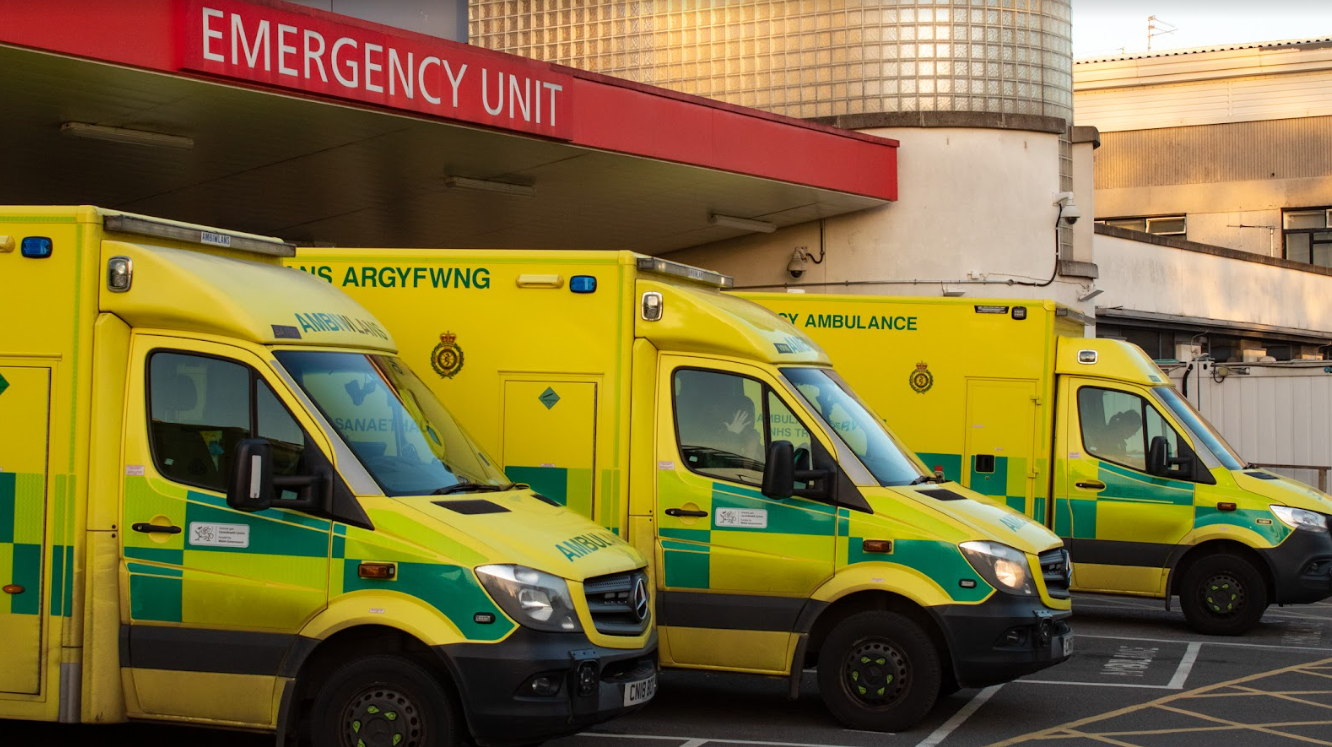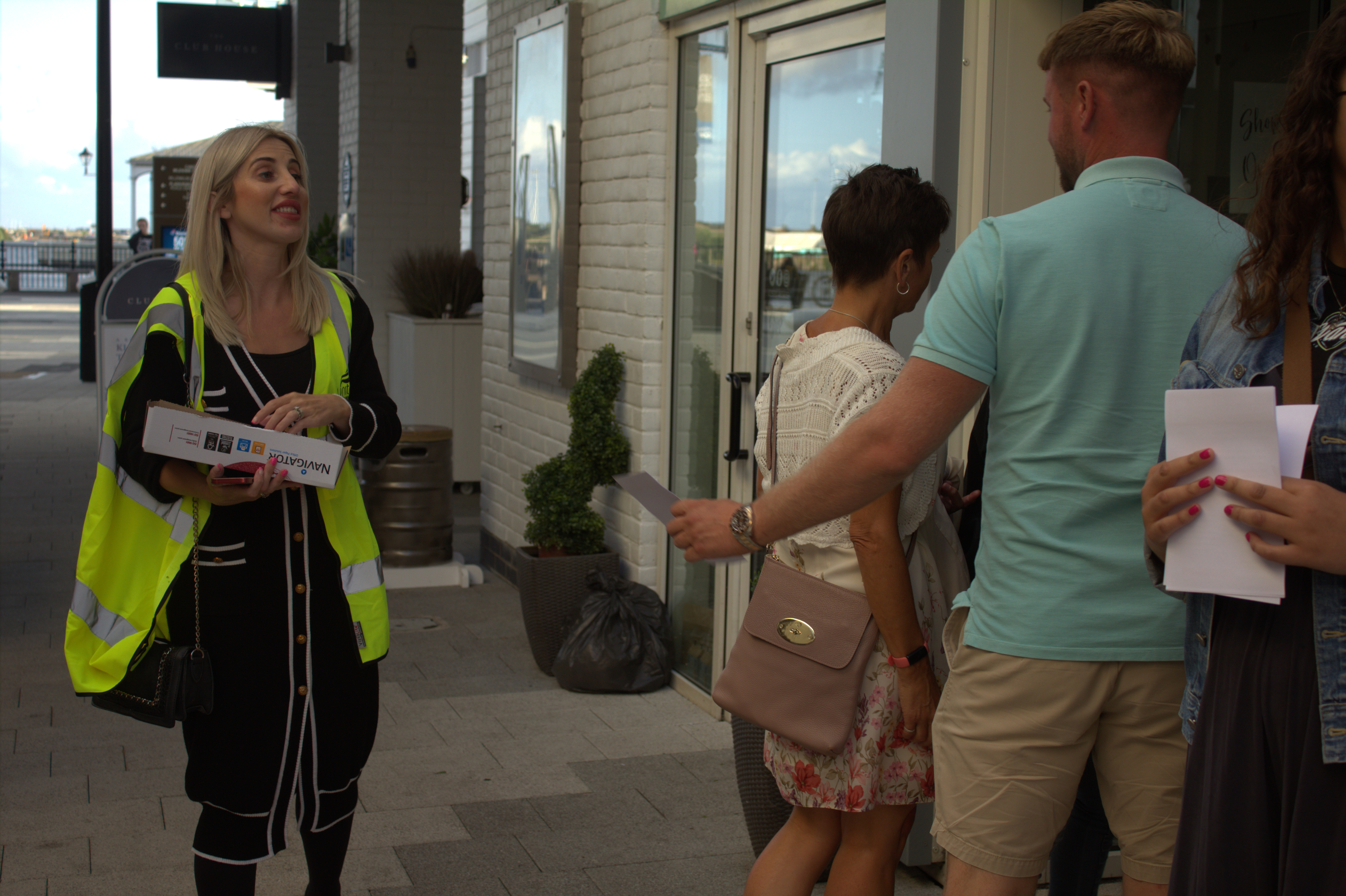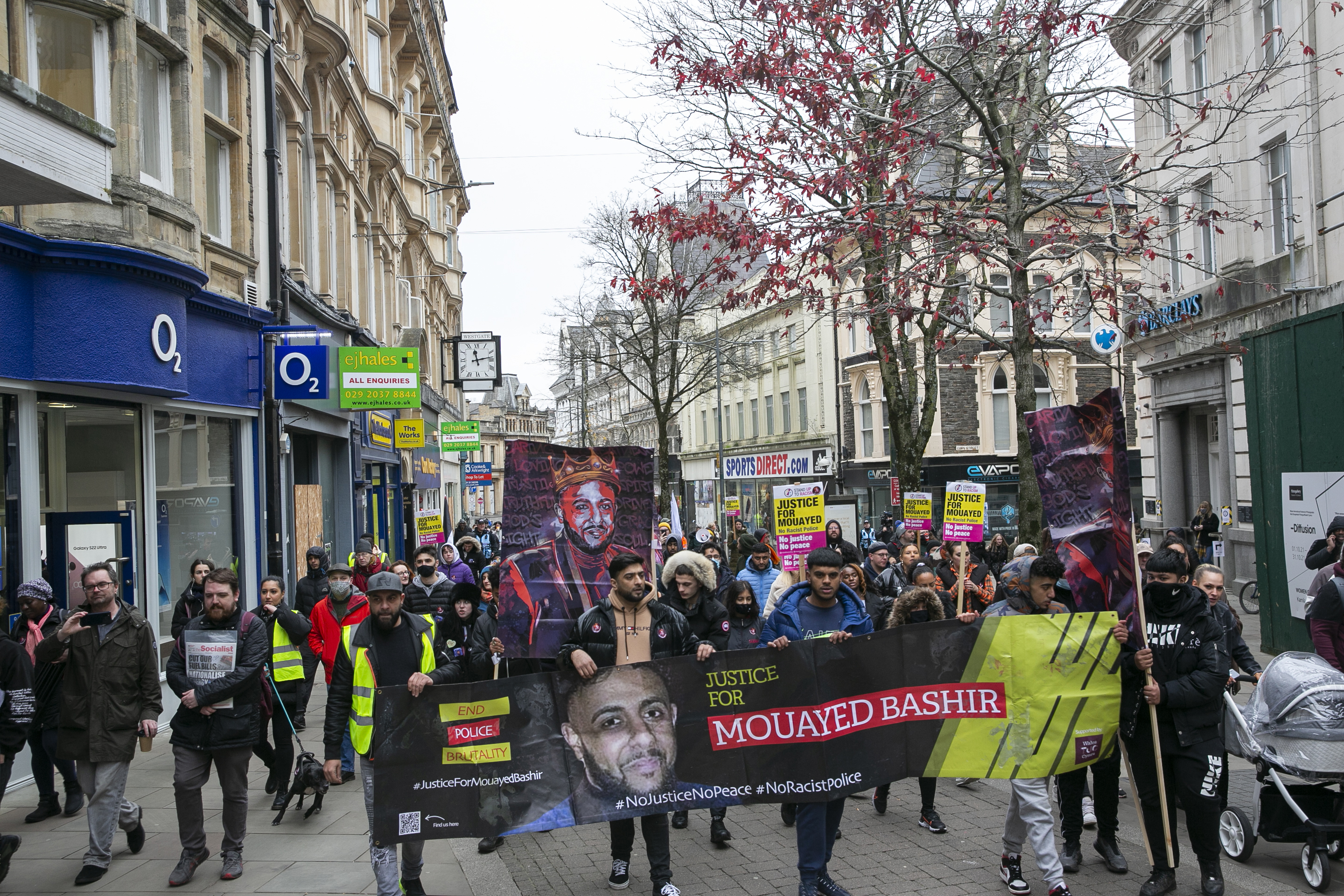
“The Public Deserves To Know What is Happening” – Ambulance Strike Exposes A Service In Turmoil
Patients are facing delays of up to sixteen hours and ambulance workers are on the brink of total exhaustion. Their strike over pay highlights a ‘perfect storm’ in the NHS that paramedics say can only be solved by fair pay and proper funding. Oojal Kour spoke to both patients and workers about the critical issues facing the service.
By Oojal Kour. Cover image by Adwitiya Pal
Craig Robinson was on holiday in Mauritius when he received the dreadful call from his son. He found out that his 82-year-old mother Maureen’s life was on the line, yet there was nothing he could do to help her.
Craig, 52, recalls the incident, “She was bathing when the wind blew the door, taking her feet from underneath,” he says, describing the condition in which his son found Maureen in her caravan in Gower, Swansea. “She was on the floor in agony. You couldn’t move or lift her. She needed to get to the hospital.”
Out of desperation, Craig’s son called for an ambulance. He was met with a floundering response and was placed on a 16-hour wait. With a potentially broken hip, Maureen and her grandson waited in the pouring rain while the ambulance finally made its way to their caravan the following day.
“Taking 16 hours to pick my mother up, that shouldn’t be happening in this day and age,” Craig says, mentioning that Maureen had to wait an additional 12 hours in the ambulance till a bed was made available for her in Morriston Hospital, where she got a partial hip replacement surgery done after this incident.
The sight of ambulances queuing outside hospitals to offload patients has become common – it is not unique to Maureen; neither are the long waiting hours any different.
Recently, a 93-year-old woman, Elizabeth Davies, from Gwynedd, was left in agony after breaking her hip and had to endure a 25-hour wait before the ambulance finally arrived. In another such incident, Alun Davies reported that his 98-year-old mother had to wait 10 hours for the ambulance and another three hours before getting into A&E.
The executive director of operations at the Welsh Ambulance Service, Lee Brooks, confirmed that in October, almost 29,000 hours were lost to handover delays across Wales. Moreover, they failed to meet the eight-minute target for life-threatening calls, with an average response time of ten minutes.
As ambulance services face record levels of delays, several factors affect their performance. Nathan Holman, regional officer at GMB, explains that inadequate funding towards social care, staff shortage and below-inflation pay are the three primary reasons for this worrying situation.
“People that should be supported at home, they’re stuck in the hospital because there is no care for them. That creates issues within hospitals; there’s no beds, and therefore ambulances can’t offload because there’s nowhere for patients to go,” he says.
When Maureen was at Morriston, her family requested to move her to a hospital closer to them, which was the Grange in Cwmbran. However, after getting there at 3 AM, she was again shifted to Nevill Hall in Abergavenny a few hours later due to a bed shortage.
“The poor woman didn’t have any rest,” says Craig, stating that she was there a week, and was going to be moved to Abervale to an old age pensioners hospital when she begged her son to get her home instead. “She just wanted to come home. She had been through so much, that was enough trauma in itself.”
While Maureen’s journey in-between hospitals and waiting for the ambulance to arrive had been stressful, she told Craig that the ambulance staff tried their hardest to help her. It took them so long to get to her as they were unable to offload another patient for 12 hours due to a bed shortage – the same thing that Maureen went through.
Patients being stuck in the back of the ambulance is not beneficial to anybody, says Nathan, adding that the paramedics’ skills and resources are then underused when they could be dealing with more patients instead.
This backlog puts immense pressure on medics. “They are hearing calls over the radio all the time, but they can’t do anything because they’ve got the patient on board,” he says.
“At the end of the day, they are not just ambulances, these are human beings. They can’t run for long periods of time without food and water. But the pressure is so bad that some of them don’t have the time to do it, and they’re making themselves unwell.”
Heledd Fychan, Plaid Cymru Member of the Senedd for South Wales Central, told voice.wales that the NHS in Wales is under strain, with a demoralised workforce that is underpaid and undervalued.
“They’re facing their own challenges in terms of the cost of living crisis. It’s very difficult to see how patients are going to receive the best possible care when the workforce itself is at its knees.”
However, she says that the Minister for Health and Social Services, Eluned Morgan, denies this crisis condition of NHS Wales. “When things are as bad as they are, you need to acknowledge the scale of the problems. There’s only so many excuses you can make rather than take accountability for decisions.”
The Welsh Ambulance Service recently declared a “business continuity incident”, commonly known as a black alert, due to the extremely high demand for emergency medical services and healthcare support. Medics were unable to manage the demand, as more than 2000 calls were made for 999 on the 10th of December, 200 of which were life-threatening.
The Welsh Government offered a pay raise of £1,400, or just 72p per hour, which Nathan argues has not kept up with inflation. Nathan of the GMB says that workers are coming out of the pandemic and finding themselves in a challenging situation as they aren’t left with any spare income and are burdened with huge bills, making it difficult for them to continue their work line.
He says, “Everybody in the profession does it because they care, it’s not for the money. But people are getting to the point where they are thinking, what’s the point of me working my socks off?”
Paying healthcare workers fairly is the least we should be doing, says Heledd, mentioning the stark contrast in how healthcare workers were treated during the pandemic versus now. “We all had signs in our windows, we were out clapping in the street. If we value them that much, pay them properly.”
The Welsh Government is pushing for so-called efficiency savings, which they say means achieving a similar output with fewer resources. But this is backfiring on ambulance workers, Nathan points out.
“These are not efficiency savings, they are cutbacks,” he tells me. “More workload is being pushed onto fewer people. We’ve got less staff now than we did several years back doing more work because of it.”
As a result, the Government has “created a perfect storm within the ambulance services”, according to Nathan. “We need these life saving individuals, but the Government couldn’t care less. They are in their ivory tower. There needs to be a radical change. This Government needs to wake up.”
Amidst dispute over pay and working conditions, 1500 Welsh Ambulance Service workers voted in favour of strike action last month. All paramedics and other ambulance staff workers of GMB working for the Welsh Ambulance Service are preparing to walk out today and on the 28th of December.
Nathan says this is needed to express all healthcare workers’ frustration in Wales and not to halt emergency services, as they will still be prioritised.
“We are not doing this to put the public in danger, we’re doing this for the exact opposite reason. The public deserves to know what is happening, we are in dire straits. This is the last chance we have to save our NHS.”


